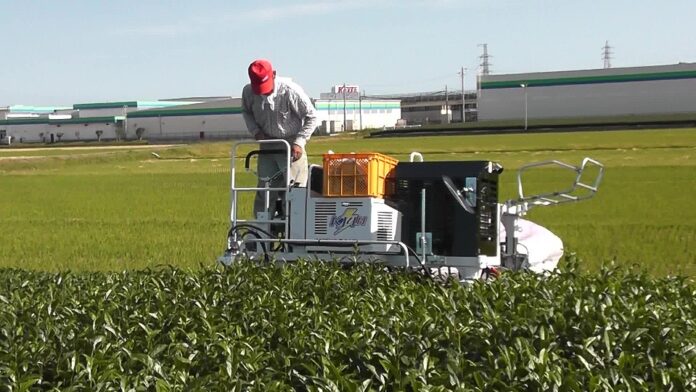Sri Lanka’s Regional Plantation Companies are experimenting with mechanization like use of shears for harvesting tea has led to better yields as they struggle to improve labour productivity amid losses caused by low prices.
In order to improve the plucking efficiency and to overcome the shortage of pluckers, more and more estates are resorting to the use of harvesting shears.
“It is expected that the use of the shears will mitigate this anomaly to some degree but greater effort is required to catch up with the outputs of other countries.”
Sri Lanka’s Tea Board has initiated mechanized tea harvesting as fear of labor scarcity in the industry with no quality or production loss is expected, E.A.J.K. Edirisinghe, Commissioner of the Tea Board said
He said the Tea Research Institute (TRI) has already carried out research collaborating with Japan, and identified that efficiency can be improved, while preserving the same production capacity in estates.
“Machine plucking and hand plucking are two different techniques and when you do hand plucking only, the best buds will be plucked.
When plucking from the machine, we will train the tree for the machine by grooming the tree,” Edirisinghe told reporters at a media briefing on Thursday (24).“Then every 15 days, there will be new buds because of the way we groomed the tree.”
He said currently 55 lands in each TRI division have been cultivated with a motorized tea harvesting model and the cultivators are asked to grow according to the new model.
However, in a publication last year, the TRI mentioned that none of the mechanized harvesting machines tested in Sri Lanka could harvest tea shoots selectively, leaving tender shoots on the bush.
The harvested crop contained mature foliage and twigs etc. which were to be removed by manual sorting.
Average output of machines is in the range between 50 (small machines) and 350 (large machines) kg/day. But, the sorting and cleaning process need more labors, industry experts say.
The machine plucking extends the frequency of harvesting (plucking round) due to non-selective harvesting of shoots. Industry experts say tea yield under mechanical harvesting could fall 30-50 percent in comparison with that of manual harvesting.
Officials from Planters Association of Ceylon have said machine tea harvesting was tested, but it cannot be implemented in Sri Lanka due to the damage it does to the tree.
“But when you start plucking after grooming, the buds will come on the same layer. Then there will be no damage,” he said, adding that countries like Kenya, Japan and Malaysia use the method without any drop in quality and quantity.
Tea Board and Tea Small Holding Development Authority (TSHDA) will provide 437,000 rupees per acre of tea land for those who follow the new model along with a special irrigation system.
